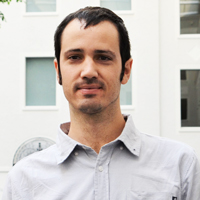La OMC anuncia el nombre de los ganadores del Premio de Ensayo para Jóvenes Economistas de 2019
Los ganadores del Premio OMC de Ensayo para Jóvenes Economistas de 2019 son Jan Bakker, de la Universidad de Oxford, y Federico Huneeus, de la Universidad de Princeton, a quienes el jurado asignó el primer puesto ex aequo.

Winning essays
«International Trade and Regional Inequality» by Jan Bakker
Jan Bakker’s paper documents that export participation is higher in more densely populated areas. To explain this finding, the paper shows two potential mechanisms through which large cities in advanced economies benefit particularly from trade.
First, firms in large cities are more productive. When trade opportunities open up, the most productive firms expand, and so does economic activity in these cities. Second, more skill and capital-intensive sectors are disproportionately located in large cities. In advanced economies, these sectors expand with improved market access. The paper shows that the first channel, a higher firm productivity in large cities, is quantitatively the more important factor.
The paper has important policy implications as it shows that trade has different effects in large and small cities. A government that is concerned with income distribution effects of trade may want to adopt policies that take regional aspects into account. In the judgement of the Selection Panel, the paper is on a very timely topic, well executed and insightful.
 Jan Bakker is a German national. He has been a Ph.D student in economics at Oxford University since 2016.
Jan Bakker is a German national. He has been a Ph.D student in economics at Oxford University since 2016.
«Production Network Dynamics and Propagation of Shocks» by Federico Huneeus
Federico Huneeus’s paper studies how external shocks propagate through production networks when links between firms are costly to form and adjust. The paper shows that these frictions generate important aggregate effects. Looking at how international trade shocks affected Chile during the Great Recession of 2007-09, it finds that without adjustment frictions in its production networks, output losses would have been 30 per cent lower.
From a policy perspective, the paper highlights the importance of stabilization policies over the business cycle to take firm-to-firm frictions into account. Similarly, a quantitative evaluation of the impact of a change in trade policy needs to account for technological or sourcing constraints. In the judgement of the Selection Panel, “the topic of the paper is increasingly important and the execution of the paper is simply impeccable”. Many questions about propagation and network dynamics are likely to become very important in a period of increased and unpredictable protectionism. The paper is on the cutting edge of trade literature and contains messages relevant to trade policy-making.
 Federico Huneeus (www.fedehuneeus.com) is a Chilean national. He received his Ph.D. in economics from Princeton University in 2019. He is currently a Postdoctoral Associate at the Cowles Foundation at Yale University.
Federico Huneeus (www.fedehuneeus.com) is a Chilean national. He received his Ph.D. in economics from Princeton University in 2019. He is currently a Postdoctoral Associate at the Cowles Foundation at Yale University.
Selection Panel
The Selection Panel for 2019 comprised Beata Javorcik (Professor of Economics, University of Oxford), Robert Koopman (Director, Economic Research and Statistics Division, WTO), Robert Staiger (Professor of Economics, Dartmouth University), Alberto Trejos (Professor of Economics, INCAE Business School). Roberta Piermartini (Economic Research and Statistics Division, WTO) coordinated the work of the Selection Panel.
















